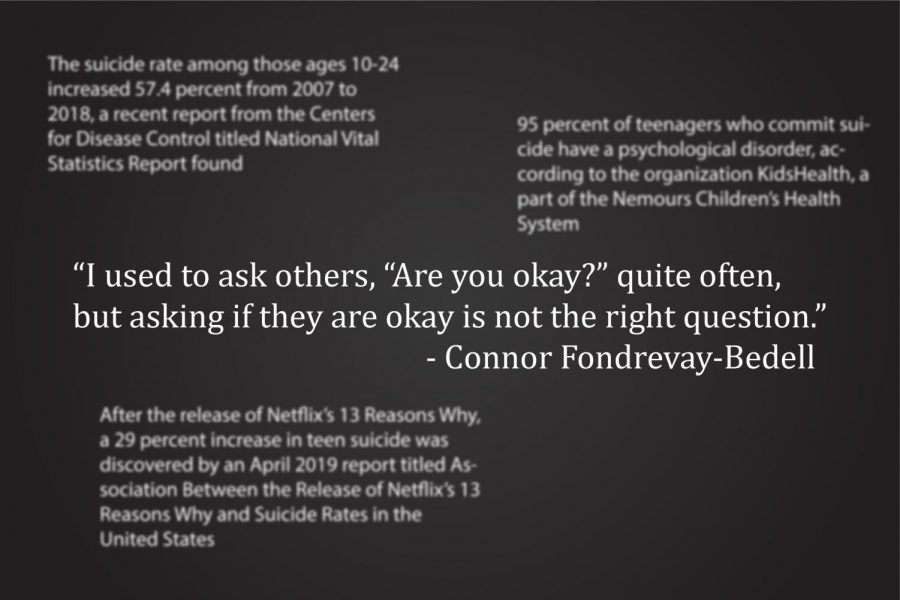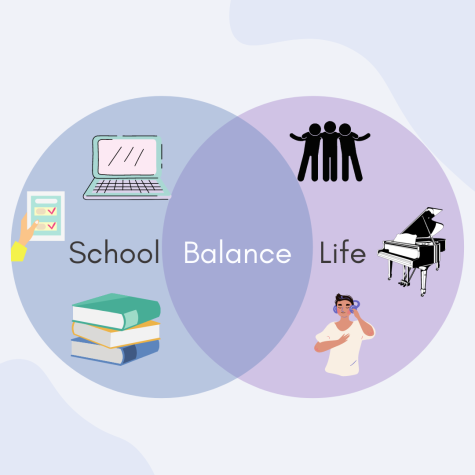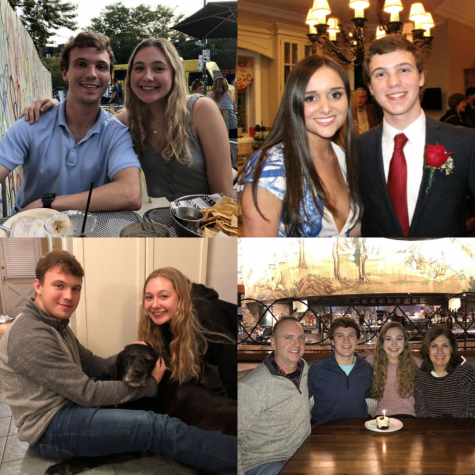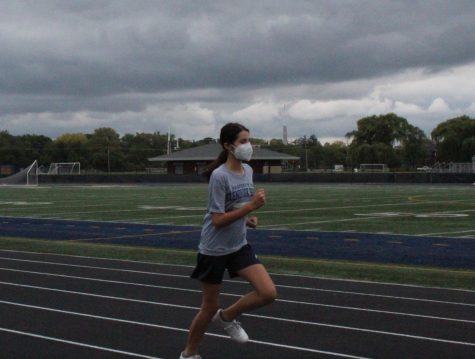The passing of a GBN student shows the challenges of discussing mental health and the need for a new approach
February 2, 2021
Trigger Warning: This column contains mention of suicide and depression
On Jan. 7th, the Glenbrook North administration informed students of the passing of senior Dylan Buckner. The news rocked our community and highlighted how difficult it is to talk about mental health.
Almost immediately after the district shared the news about Dylan, a petition to cancel student finals sprung up on social media.
An Instagram account for the Acorn Collective created formats for emailing the school to end finals. The petition included a photo of Dylan while the Instagram infographic directed users to detail their relation to Dylan in writing to the school.
This was wrong and intentionally used a student’s death for personal gain. Other members of the Glenbrook community ranted on social media about how this was Governor J.B. Pritzker’s fault, stating that if he had ended the lockdowns, Dylan’s suicide could have been prevented.
Both the drive behind ending finals and ending the lockdown fell into the belief that if the stresses of finals or the burdens of lockdown had been eliminated, then Dylan would still be here. This belief received pushback from teammates of Dylan on social media, with GBN senior Drayton Charlton-Perrin calling for people to stop using Dylan’s death for political purposes.
“To everyone using Dylan’s death for political or personal gain please stop.” Charlton-Perrin wrote on Twitter “We are all grieving and all you are doing is making us hurt even more. This is not on JB [Pritzker], this doesn’t mean no finals. Dylan wouldn’t want this for us. Remember the amazing kid he was and mourn together.”
Seeing people trying to take advantage of a person’s death was upsetting and wrong. It was not a good natured argument because no push to cancel finals existed before Dylan’s death. This was instead a group of people taking an event and twisting it into something to benefit themselves.
Dylan’s death brought attention to a significant issue among today’s teenagers, namely, a struggle with mental health and suicide.
A recent report from the Centers for Disease Control titled National Vital Statistics Report found that the suicide rate among those ages 10-24 increased 57.4 percent from 2007 to 2018. In Illinois alone the increase was 41.4 percent in the same time period. The CDC also found that suicide is the second most common cause of death among teenagers behind only car accidents.
Suicide is a significant problem that appears to be getting worse with time.
As a society, we have found it very difficult to have productive conversations about teen suicide and depression.
Personally, the first time I can recall suicide being a significant topic of discussion was the 2017 release of Netflix’s Thirteen Reasons Why. It featured a storyline centered around teen suicide and was roundly criticized for romanticizing death and recklessly depicting a delicate issue.
Two years later, an April 2019 report titled Association Between the Release of Netflix’s 13 Reasons Why and Suicide Rates in the United States found a 29 percent increase in teen suicide following the show’s release. The increase was predominately attributed to a spike in male suicide.
The introduction to suicide for many young adults was from a television show that used it as a plot point and to boost viewership.
Figuring out what is behind the consistent increase in teen suicide has been challenging. Scientists have not yet landed on a single reason, but various individual studies offer a few clues. Possible reasons behind the decade long increase could be, among other issues, the worsening Opioid epidemic; the 2008 recession; and increased use of social media.
According to the organization KidsHealth, a part of the Nemours Children’s Health System, one thing researchers know for certain is this: 95 percent of teenagers who commit suicide have a psychological disorder.
Helping someone diagnosed with depression can be tricky. I used to ask others, “Are you okay?” quite often, but asking if they are okay is not the right question, and often it will not help. If you saw someone with a broken ankle, asking them if they are okay would only do so much and would not solve the problem.
We think mental illness is different because it is concentrated in the brain, so it must not be a physical ailment, but this approach is wrong. Diagnosed mental illness is just as serious as a physical injury and cannot be solved with just words.
This is part of a misconception we have around mental health. Having a mental illness changes how you perceive events and how you live. You can do everything beneficial for your mental health: exercise, eat well, get enough sleep, etc., and you still would have a mental illness. Exterior events only have so much of an impact when you already have a condition.
After the push for cancelling finals faded, the response on social media began to shift. Students were posting P.S.A.’s offering phone numbers for mental health support, or emphasizing the importance of seeking help when you need it. Previous misconceptions about mental health were being debunked and the message that it’s okay to need help began to shine through.
Above all, what I found most encouraging was the push to make men seeking mental help normal. While men can associate asking for help with shame and weakness, this message is beginning to change. Junior Emmett Cuncannan, a friend of Dylan’s, shared that Dylan was frustrated with social expectations around male mental health.
“Dylan reached out to me in September telling me how he was struggling and how he didn’t want to appear weak to others,” Cuncannan said. “He said in society, men are supposed to hide their feelings. This social stigma caused our community to lose a loved one. Please do not be afraid to reach out [for] support.”
While losing Dylan was a tragic event, maybe we can make his legacy one of spreading awareness and helping others.















